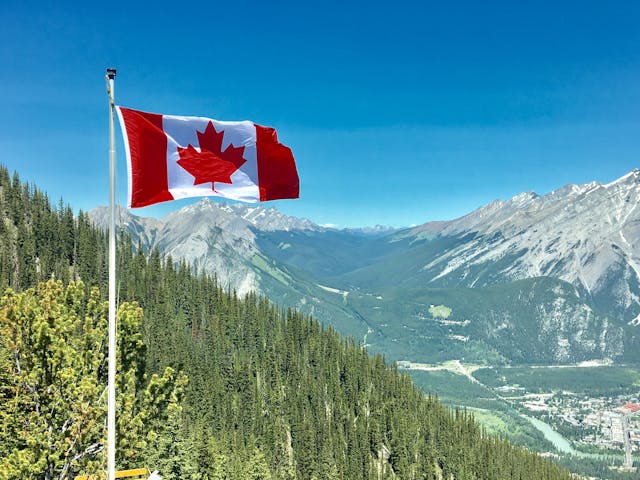
Why does Canada have two official languages? Canada has ended up with two official languages because of European colonialism.
Canada is not the only country in the world to have more than one official language. There are over 30 altogether. Not all of them, but with many you can see in the impact of European colonialism during the 16th to 20th centuries. The majority of these countries have the language the colonial nation brought and their own language. Many African countries have English or French and a majority local language as their official languages, but they also have an enormous number of minority languages as well, which is a result of the way the countries were created. However, Canada is a little unusual in this respect because its official languages are both those of colonizing nations and they don’t use a local language as an official language. That being said, in 2019, Canada passed the Indigenous Languages Act and created a minister of Indigenous Languages. This doesn’t make any indigenous languages an official language, but it does mean that they can be taught, recorded, and people who speak them will have access to government services using those languages.
So, why are English and French the official languages of Canada. French wasn’t made an official language until 1969, but to understand why, we need to go back and look at the origins of Canada.
Canada was the first part of the American continent to be settled by humans and that was about 15,000 years ago. After humans left Africa, possibly 60,000 years ago, they gradually spread out over the Middle East, Europe, and Asia. It took them about 45,000 years to reach the north of where Russia is now, and they crossed the Bearing Strait on ice bridges. 45,000 years seems like an awful long time for people to go from Africa to Canada, but there were several ice ages and prehistoric people would probably have stayed away from places that were too cold because there would have been very little food. The fact that they made it to Canada at all is amazing. Once there, they spread down through North America and into South America, forming many different tribes. By the time the first Europeans arrived, there were many different tribes that spoke over 300 different languages. Once the Europeans arrived, the number of indigenous people shrank rapidly, and languages died out with them. Currently, there are 150 indigenous languages still spoken in North America and Canada.
The French were the first Europeans to arrive in Canada. They first arrived there in 1534 and started to create trading posts. They made their first settlement in 1608, which would become Quebec. British settlers arrived in 1610 and the Hudson Bay Company was given permission to trade in 1670. Both countries continued to build settlements and forts, but France controlled more of the area that would become Canada than Britain did. At that time, Canada was a collection of lands and not a country. Then, over the 18th century, Britain defeated France in several wars in Europe and in the Americas. Britain ended up controlling all of the French forts and settlements in Canada. The controlling British forces and government spoke English, but all of the people in the settlements had spent over 100 years speaking French and their culture was truly French. If they were going to avoid rebellion, there was not much the British could do about that, so they let the people speak French.
The stance of the British government was that more English speaking immigrants would move into the Quebec and other French speaking areas, greatly outnumbering the French speakers and forcing them to assimilate into British culture. That didn’t happen though, and the French speaks vastly outnumbered the English speakers in the area. Britain may have considered forcing the French speaking areas to speak English, but the American War of Independence changed their way of thinking. The 13 colonies started to rebel and Britain was very worried that the French speakers in Canada would rise up and join them. Britain would not be able to fight in America and put down that rebellion as well, so they passed the Quebec Act in 1744, which allowed the French people to keep their religions, their civil law, and their language. Interestingly, the Quebec Act ended up being one of the five reasons that the 13 colonies used to start the War of Independence.
The Canadian colonies were united into one country in 1867 with the Constitution Act. This act made English and French the official languages of the Quebec government and it also allowed for both French and English to be spoken side by side in Canada. They weren’t official languages, but they were in law for the first time. It was only in 1967, one hundred years after the first law, that the Official Languages Act was passed and both French and English became the official languages of Canada. If it hadn’t been for the American War of Independence, all of Canada could be speaking English right now. And this is what I learned today.
Photo by Daniel Joseph Petty: https://www.pexels.com/photo/canada-flag-with-mountain-range-view-756790/
Sources
https://laws-lois.justice.gc.ca/eng/acts/i-7.85/page-1.html?wbdisable=false
https://www.thecanadianencyclopedia.ca/en/article/colonialism-in-canada
https://blog.remitly.com/lifestyle-culture/countries-more-than-one-official-language-guide-list
https://en.wikipedia.org/wiki/Canada#History
https://en.wikipedia.org/wiki/History_of_Canada
https://www.thecanadianencyclopedia.ca/en/article/prehistory
https://www.britannica.com/topic/North-American-Indian-languages
https://www.thecanadianencyclopedia.ca/en/article/quebec-act

Pingback: Why does Canada have two official languages? - English Reading Practice